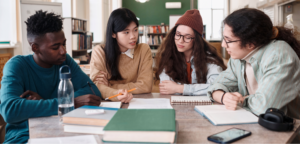
From Groups to Teams: Promoting Collaboration and Inclusion through Metacognition
Group work is a fixture in college courses, with faculty using it for any number of reasons: to promote engaged learning, to prepare students for future work in their careers and communities, and even to reduce grading load. In thinking about how to ensure that













